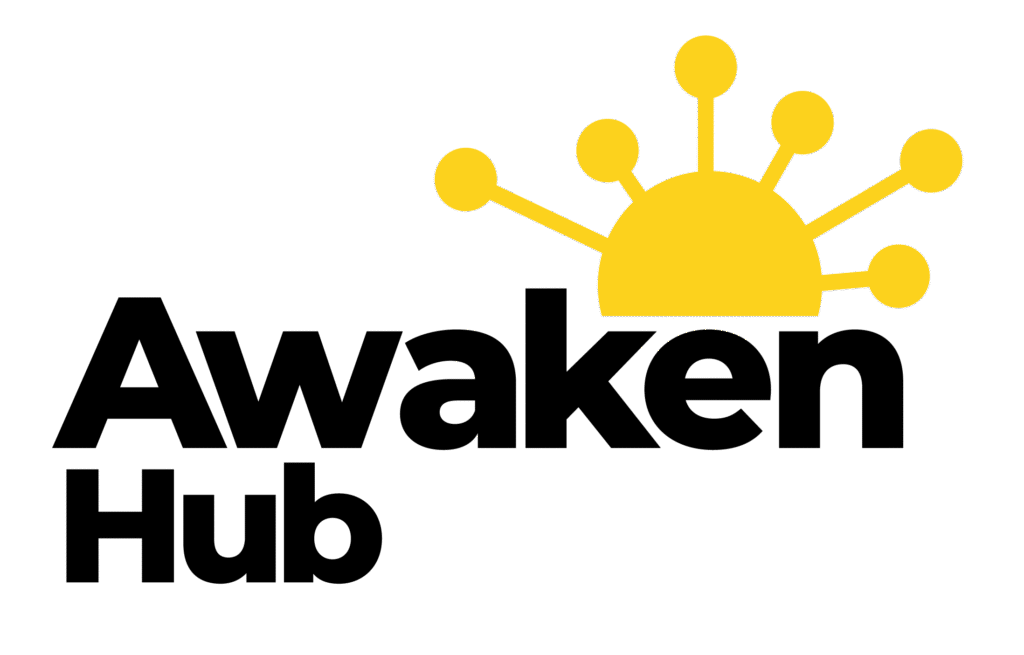Boost Your Website’s Ranking with Top SEO Tools
In the ever-evolving landscape of digital marketing, Search Engine Optimisation (SEO) has emerged as a critical component for businesses seeking…
In the ever-evolving landscape of digital marketing, Search Engine Optimisation (SEO) has emerged as a critical component for businesses seeking to enhance their online visibility. As you navigate this complex terrain, you will find that SEO tools are indispensable allies in your quest for higher search engine rankings. These tools not only streamline your efforts but also provide valuable insights that can inform your strategies.
By leveraging the right SEO tools, you can gain a competitive edge, ensuring that your website attracts the right audience and converts visitors into loyal customers. The importance of SEO tools cannot be overstated.
From keyword research to technical audits, these tools offer a comprehensive suite of functionalities that cater to different facets of SEO. As you delve deeper into the world of SEO, understanding the various types of tools available will empower you to make informed decisions that can significantly impact your online presence.
Summary
- SEO tools are essential for improving website visibility and ranking on search engines.
- Keyword research and analysis tools help identify relevant keywords for targeting in content and meta tags.
- On-page SEO tools assist in optimizing website content, meta tags, and internal linking structure.
- Off-page SEO tools aid in building backlinks and monitoring external factors that influence website ranking.
- Technical SEO tools help in identifying and fixing website issues that may affect search engine visibility.
Keyword Research and Analysis Tools
Keyword research is the cornerstone of any successful SEO strategy. It involves identifying the terms and phrases that potential customers use when searching for products or services similar to yours. To facilitate this process, a plethora of keyword research and analysis tools are at your disposal.
These tools not only help you discover relevant keywords but also provide insights into their search volume, competition level, and potential traffic. One popular tool you might consider is Google Keyword Planner. This free tool allows you to explore keyword ideas based on your business niche and provides data on average monthly searches and competition levels.
By using Google Keyword Planner, you can identify high-potential keywords that align with your content strategy. Additionally, tools like SEMrush and Ahrefs offer more advanced features, such as keyword difficulty scores and SERP analysis, enabling you to refine your keyword selection further. By utilising these tools effectively, you can ensure that your content is optimised for the terms that matter most to your audience.
On-Page SEO Tools

Once you have identified the right keywords, the next step is to optimise your website’s on-page elements. On-page SEO tools are designed to help you enhance various aspects of your web pages, ensuring they are both user-friendly and search engine-friendly. These tools analyse elements such as title tags, meta descriptions, header tags, and content structure, providing recommendations for improvement.
One widely used on-page SEO tool is Yoast SEO, which integrates seamlessly with WordPress. This plugin offers real-time analysis of your content, highlighting areas that require optimisation while providing actionable suggestions. For instance, it evaluates keyword usage, readability, and overall SEO score, allowing you to make necessary adjustments before publishing your content.
Another valuable tool is Moz Pro, which offers an array of features including on-page optimisation suggestions and a comprehensive site audit tool. By leveraging these on-page SEO tools, you can enhance the quality of your content and improve its chances of ranking higher in search results.
Off-Page SEO Tools
| Tool Name | Features | Pricing |
|---|---|---|
| Ahrefs | Backlink analysis, competitor research, keyword research | From £99/month |
| Moz | Link building, site audits, rank tracking | From £79/month |
| SEMrush | Backlink analysis, keyword research, site audit | From £99.95/month |
While on-page optimisation is crucial, off-page SEO plays an equally significant role in determining your website’s authority and credibility. Off-page SEO tools focus on building backlinks, monitoring brand mentions, and analysing your online reputation. These tools help you understand how external factors influence your search engine rankings and provide insights into how you can improve your off-page strategies.
One effective off-page SEO tool is Majestic, which offers a detailed analysis of backlinks pointing to your website. By examining metrics such as Trust Flow and Citation Flow, you can gauge the quality of your backlink profile and identify opportunities for improvement. Additionally, tools like BuzzSumo allow you to track brand mentions across social media platforms and the web, helping you understand how your content is being received by audiences outside of your website.
By utilising these off-page SEO tools, you can enhance your online presence and build a robust backlink profile that contributes to higher search engine rankings.
Technical SEO Tools
Technical SEO is often overlooked but is essential for ensuring that search engines can crawl and index your website effectively. Technical SEO tools help you identify issues related to site speed, mobile-friendliness, and overall site architecture. By addressing these technical aspects, you can improve user experience and enhance your site’s performance in search results.
Google Search Console is an invaluable tool for monitoring your website’s technical health. It provides insights into indexing issues, crawl errors, and mobile usability problems. By regularly checking Google Search Console, you can identify areas that require attention and take corrective measures promptly.
Another useful tool is Screaming Frog SEO Spider, which crawls your website to identify technical issues such as broken links, duplicate content, and missing meta tags. By leveraging these technical SEO tools, you can ensure that your website is optimised for both users and search engines alike.
Content Optimization Tools

Creating high-quality content is vital for engaging your audience and driving traffic to your website. Content optimisation tools assist you in refining your content to ensure it resonates with both users and search engines. These tools analyse various elements of your content, including keyword usage, readability, and overall structure.
One popular content optimisation tool is Clearscope, which helps you create content that ranks well by providing keyword suggestions and readability scores. By using Clearscope, you can ensure that your content is comprehensive and relevant to the topics you’re covering. Another effective tool is Grammarly, which not only checks for grammatical errors but also offers suggestions for improving clarity and engagement.
By incorporating these content optimisation tools into your writing process, you can create compelling content that captures the attention of both readers and search engines.
Monitoring and Reporting Tools
To measure the effectiveness of your SEO efforts, monitoring and reporting tools are essential. These tools provide insights into key performance indicators (KPIs) such as organic traffic, keyword rankings, and conversion rates. By regularly monitoring these metrics, you can assess the impact of your strategies and make data-driven decisions for future optimisation.
Google Analytics is a powerful monitoring tool that allows you to track user behaviour on your website. You can analyse traffic sources, user demographics, and engagement metrics to gain a deeper understanding of how visitors interact with your site. Additionally, tools like SEMrush offer comprehensive reporting features that allow you to track keyword rankings over time and assess the effectiveness of your SEO campaigns.
By utilising these monitoring and reporting tools effectively, you can stay informed about your website’s performance and make necessary adjustments to optimise your strategies.
Conclusion and Recommendations
In conclusion, the world of SEO is vast and multifaceted, requiring a strategic approach to achieve success in the digital landscape. By leveraging a variety of SEO tools tailored to different aspects of optimisation—ranging from keyword research to technical audits—you can enhance your website’s visibility and performance in search engine results. Each type of tool plays a unique role in supporting your overall strategy; therefore, it is crucial to select the right combination that aligns with your specific goals.
As you embark on or continue your SEO journey, consider investing time in familiarising yourself with these tools and their functionalities. Regularly monitor your progress using analytics and reporting tools to ensure that you’re on track to meet your objectives. Remember that SEO is not a one-time effort but an ongoing process that requires continuous learning and adaptation.
By staying informed about industry trends and best practices while utilising the right tools at your disposal, you will be well-equipped to navigate the complexities of SEO successfully.
If you are looking to improve your website’s search engine ranking, you may want to consider using SEO tools. These tools can help you identify areas for improvement and track your progress over time. In a recent article on com/seo-audit-dublin/’>SEO audits in Dublin, the importance of conducting regular audits to ensure your website is optimised for search engines is highlighted.
By using the right tools and techniques, you can increase your website’s visibility and attract more inbound leads. For more information on how SEO can benefit your lead generation and direct marketing efforts, check out this article on SEO for lead generation and direct marketing.
FAQs
What are SEO tools?
SEO tools are software or online platforms that help website owners and digital marketers improve their website’s search engine ranking. These tools provide insights and data to optimize a website’s content, keywords, backlinks, and overall performance.
What are the common features of SEO tools?
Common features of SEO tools include keyword research, on-page optimization, backlink analysis, rank tracking, site audit, and competitor analysis. These features help users identify opportunities for improvement and track the effectiveness of their SEO efforts.
How do SEO tools help improve website ranking?
SEO tools help improve website ranking by providing data and insights that enable users to identify and target relevant keywords, optimize on-page elements, monitor backlink quality, and track their website’s performance in search engine results pages (SERPs).
What are some popular SEO tools available in the market?
Some popular SEO tools in the market include Google Search Console, SEMrush, Ahrefs, Moz Pro, Screaming Frog, and Yoast SEO. These tools offer a range of features to help users with keyword research, site audits, backlink analysis, and more.
Are SEO tools essential for website owners and digital marketers?
Yes, SEO tools are essential for website owners and digital marketers as they provide valuable insights and data to improve a website’s search engine ranking. These tools help users make informed decisions and optimize their websites for better visibility and organic traffic.











